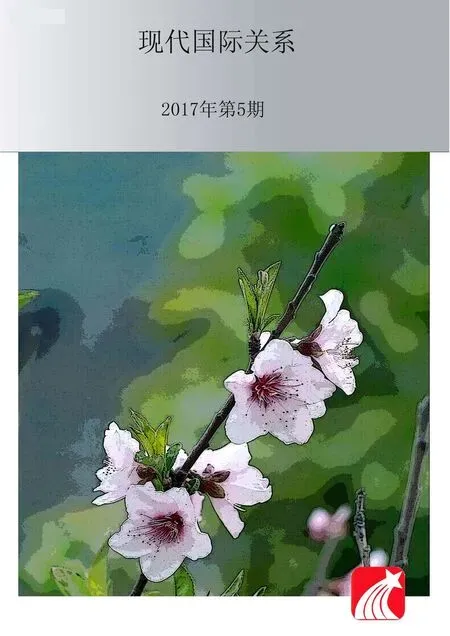Abstracts
s
Effectiveness and Constraints of UN Sanctions on DPRK
HaoQunhuan
Abstract: DPRK had conducted five nuclear tests from 2006 to 2016 despite international condemnation. To deter DPRK’s development of nuclear technology, UN Security Council has passed sanctions resolution on North Korea. The implementation of these sanctions has reduced DPRK’s government budget, economic growth, trade and investment. However, DPRK still has the determination to develop its nuclear and missiles. Sanctions on DPRK by UN could not force DPRK to give up its nuclear program because the effectiveness of sanctions was constrained by a variety of factors. The international community should have a clear understanding of the effectiveness and prospects of sanctions on DPRK and combine sanction, deterrence and diplomacy to change the vicious circle of DPRK’s nuclear tests.
DPRK Nuclear Issues; UNSC Resolutions; Sanctions on DPRK; Effects of Sanctions; Diplomacy
Breakthrough of US-Japan ‘Historical Reconciliation’ and Its Impacts
WangShuming&WangYing
Abstract: After a long period of gradual improvement, US-Japan ‘historical reconciliation’ had attained breakthrough in Obama’s second term. The process is based on the public reconciliation between the two countries, with a target to strengthen the US-Japan alliance. The US and Japan have moved forward to ‘historical reconciliation’ that needs ‘no apology.’ They could not apologize to each other in this process because they are both facing the conservatives who are against an official apology and a ‘balance of immorality’ does exist between them. The breakthrough of the reconciliation has provided Japan with more favorable domestic and international environment to break away from the restriction of ‘the Post-WWII System.’ It will also weaken the historical recognition and value’s foundation of the Post WWII international order in East Asia. It will also help Japan to break the international united front concerning historical problems in East Asia and weaken international restriction to its ‘historical revisionism.’
Keywords: US-Japan Alliance; Historic Reconciliation; Breakthrough; Driving Factors; Impacts
Recent Political Development Trends in India and Its Impacts
WangShida&YangRui
Abstract: On March 2017, Prime Minister of India Narendra Modi won victory in India’s new round of local election on behalf of Bharatiya Janata Party (BJP). In 2014, BJP has already won the simple majority in Lok Sabha, the lower house of Indian parliament, which ended the coalition politics lasting over three decades. Nowadays, BJP is ruling not only in federal government but also in many provincial authorities, showing its dominant position. The oppositions, including Indian National Congress Party, local political parties as well as left-wing parties, find it harder to compete with BJP in the short term. The possibility of Mr. Modi to win his second term in 2019 is rising. Such a new political development will inevitably have impacts on India’s future.
Keywords: Modi; Indian Politics; Hindu Nationalism
Analysis on India’s Modi’s Strategy toward Becoming a Big Country
WangXiaowen
Abstract: The recent two years have witnessed Modi government’s strategic features. It focuses on becoming a big power and playing a leading role in South Asia. The diplomatic strategy attaches importance to soft power, and pays attention to the self-development and the external environment. Modi’s strategic concept is deeply influenced by realism. To some extent, it reflects the ruling concept of Bharatiya Janata Party (BJP). The strategy implementation is inseparable from Modi’s governing foundation, ruling style and his individuality. Under the influence of Modi’s strategy, Sino-Indian relations will witness more economic cooperration, diverse kinds of public diplomacy and more colliding geopolitics.
Keywords: India; Modi’s government; Strategy; Sino-Indian relations
The Perception and Reaction of Indonesia to the Belt and Road Initiative and Suggestions for China’s Response
PanYue&ChangXiaozhu
Abstract: As the biggest economy of ASEAN, how Indonesia perceives and reacts to the Belt and Road (B&R) initiative is crucial. Indonesia has limited perception of the B&R initiative; there exists polarizations in standing points and reactions of all circles. The government mainly supports and welcomes the initiative. The ruling coalition is willing to cooperate positively with the B&R initiative, while parts of the military and opposition are quite skeptical about the B&R initiative and the intention of China. The Indonesian Chinese group has better cognition of the B&R initiative. The Indonesian academic circles are generally cautious, skeptical and even critical towards the initiative. This article attempts to offer proposals from a Chinese point of view, to disseminate the B&R initiative, to enhance and deepen the understanding of the initiative in all circles of Indonecia, and to ease the negative or hostile emotions appropriately. China and Indonesia should negotiate a settlement of the Natuna issue. China should adjust its publicity approach to Indonesia, carry out public diplomacy and promote cultural exchanges and communications. Chinese enterprises should pay more attention to project quality and take social responsibilities positively.
Keywords: the Belt and Road (B&R); Indonesia; China-Indonesia Relationship
(Edited By Zhang Yimeng)

